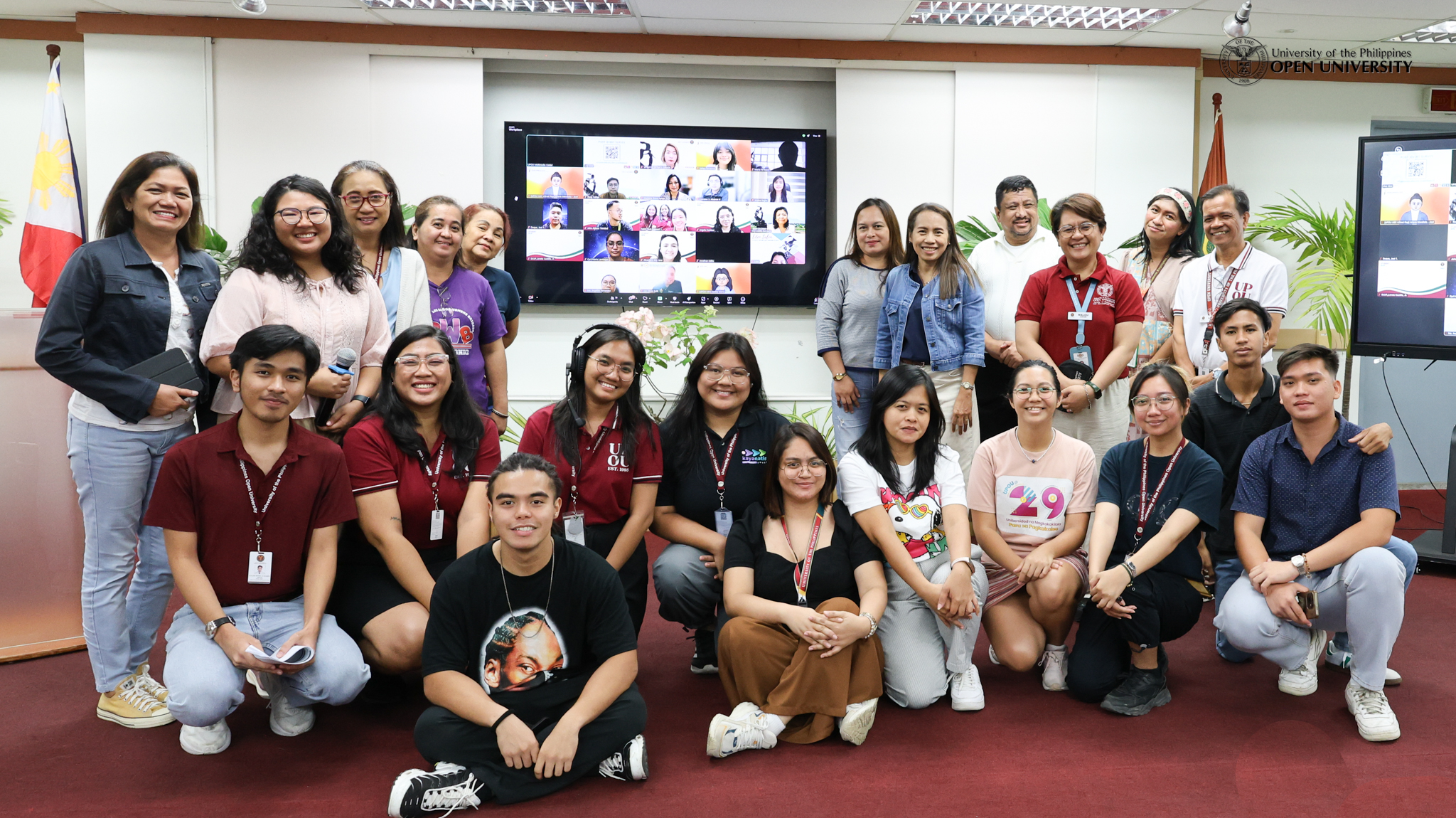

The University of the Philippines Open University-Faculty of Management and Development Studies (UPOU-FMDS), recently hosted a Let’s Talk it Over on “Hugot ng Bayan Muli para sa Halalan: Pinalalim na Talakayan Ukol sa “Agenda” ng Bayan para sa National Elections 2025”, on 09 May 2025 at the UPOU Audiovisual Room and via Zoom.
The event aimed to raise awareness about critical concerns that citizens should reflect on as they choose their leaders in the election. In particular, the forum centered on priority agenda areas and voter concerns—ranging from illegal campaign practices and election automation to public health, community resilience, and social protection. These discussions were intended not only to inform but also to encourage civic dialogue around the electoral process and the social challenges that surround it.
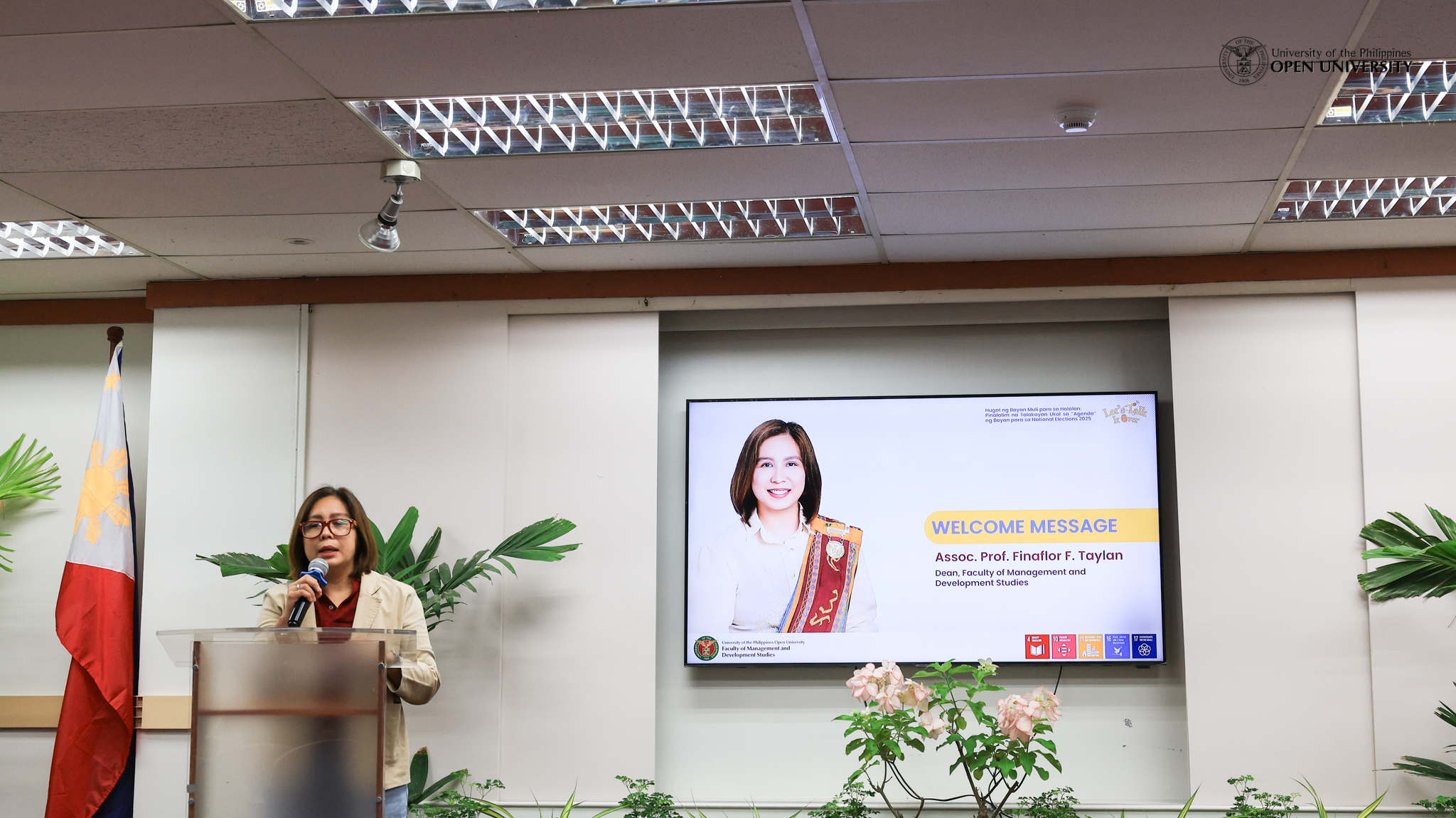

Associate Professor Finaflor F. Taylan, FMDS Dean and Program Chair of the Diploma in/Master of Social Work (D/MSW) Program, delivered her welcome message in which she stressed the difficult realities of life in the Philippines and that the election symbolizes new hope. She also emphasized that this does not mean the people are dependent on the government, but rather, as elected public officials, it is they who are expected to provide direction and serve the will of the people. Dean Taylan also called for a shift — that this time, hopefully, it is the people who will be heard.
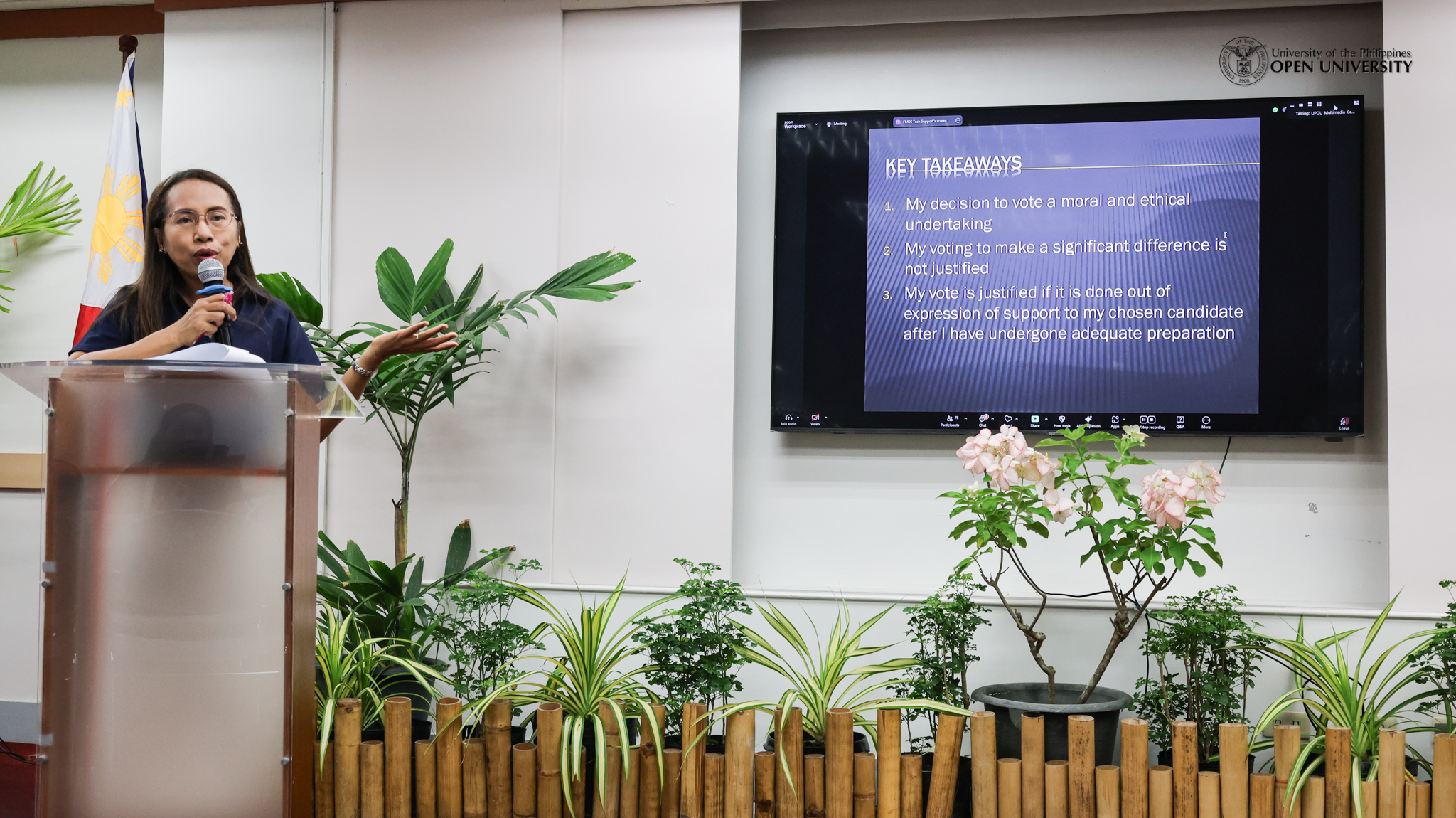

To provide context for the discussions, Assistant Professor Rose Nonette C. Capadosa, Program Chair of the Master of Public Management (MPM) Program, offered a grounding session on voter ethics and rationality as well as the key agenda areas that would be explored by the speakers. She also shared the difference between ethics and morality as well as the paradox of voting.
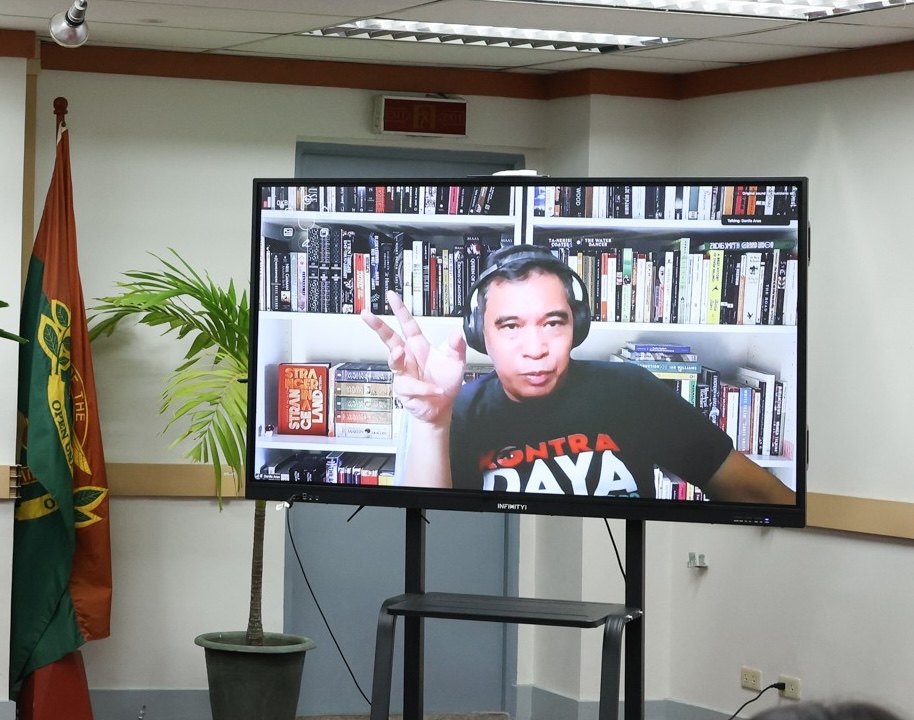

The forum continued with a presentation by Associate Professor Danilo A. Arao of UP Diliman and convenor of “Kontra Daya,” who discussed the various dimensions of election fraud. His talk highlighted key aspects of fraud, including the lack of transparency in automated election, disinformation, vote buying, harassment and intimidation, the misuse and abuse of government resources, and the circumvention or mockery of the law. He ended his presentation with calls to investigate bribery allegations, amend the Party-List Law, push for a hybrid election system, and pass the Anti-Dynasty Law.
Shifting to social issues, Dean Taylan and Assistant Professor Maria Lourdes T. Jarabe, Program Chair of the Diploma in Women and Development (DWD) Program and Director of Office of Gender Concerns, addressed poverty among the basic sectors, social protection, and the status of women participation in politics. Their presentation highlighted the need for inclusive public policies that reflect the needs of the underserved communities, particularly women.
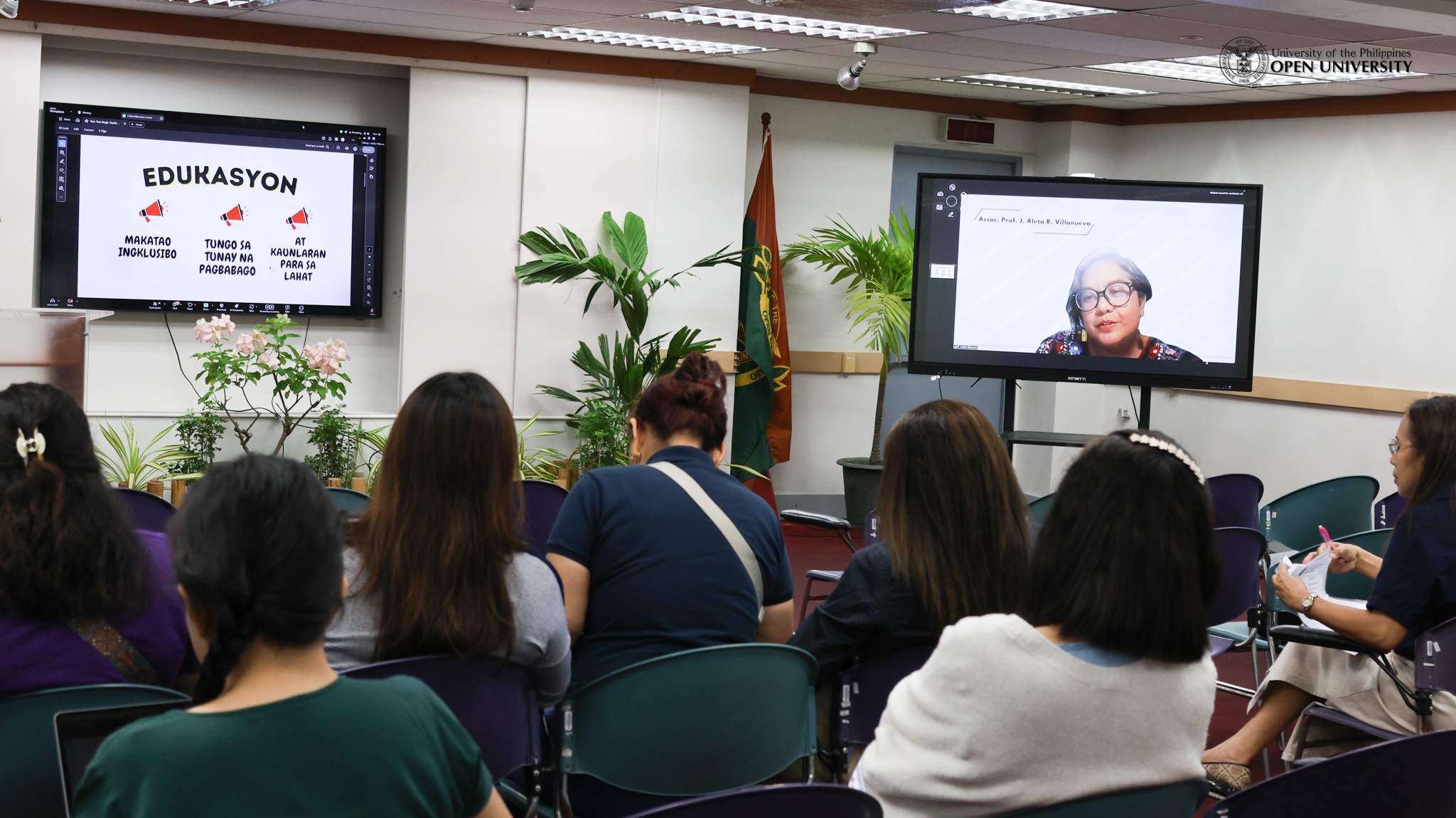

Moreover, Associate Professor Juliet Aleta Villanueva, Program Chair of the Diploma in/Master of Arts in Social Studies Education (D/MASSE) Program, then tackled the inclusivity, equity, and equality in education, focusing on the need for policies that enable equal access and opportunities for learners across different regions and backgrounds. This, she emphasized, is foundational for fostering informed and active citizenship. She also pointed out that long-term support is needed for these efforts to make a meaningful impact.
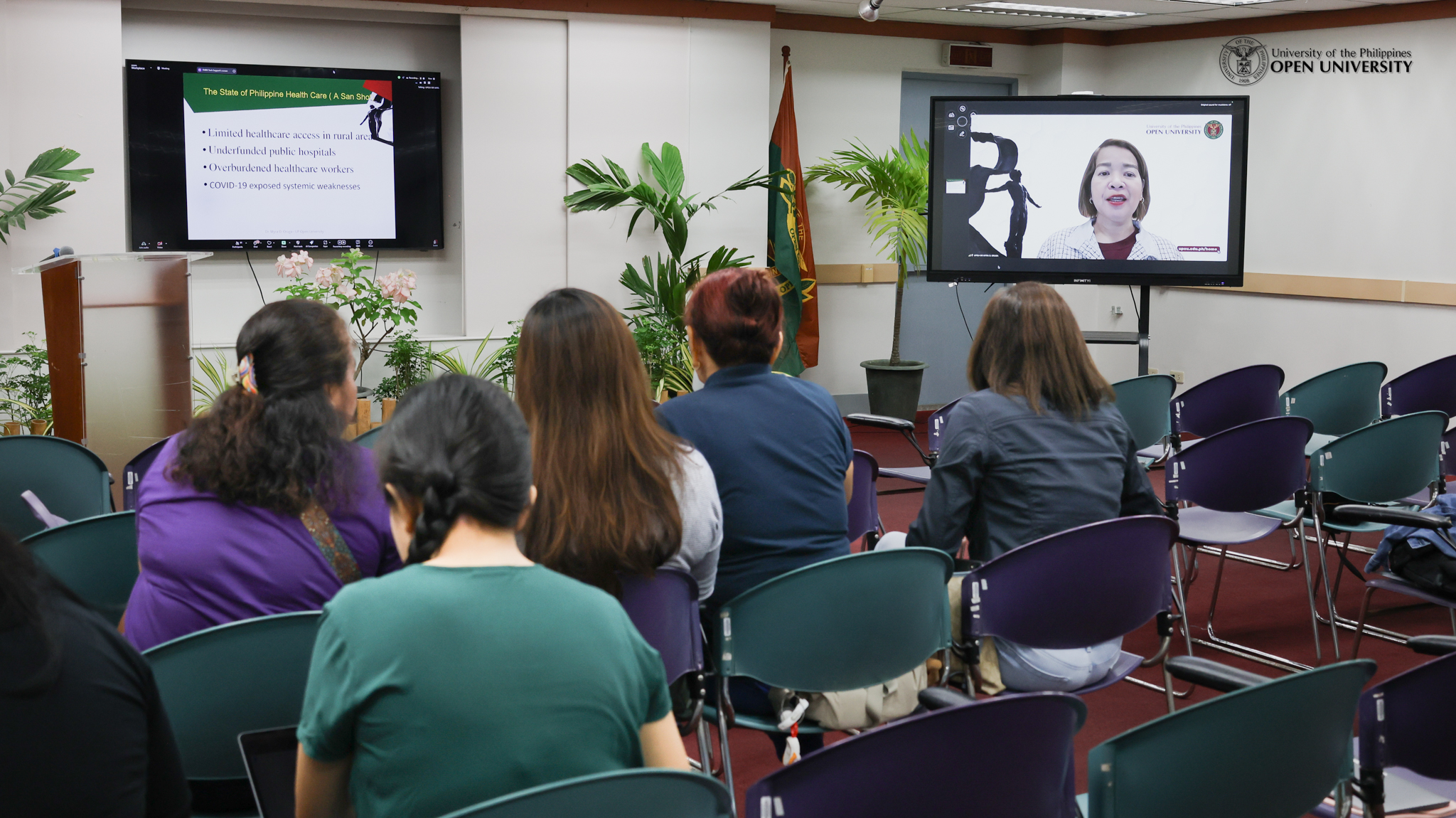

Following this, Associate Professor Myra D. Oruga, Program Chair of the Diploma in/Master of International Health (D/MIH) Program, spoke on the importance of strengthening healthcare systems, especially in the context of ongoing health crises and the broader need for resilient public services. She also presented the state of Philippine healthcare, highlighting the limited access in rural areas, underfunded public hospitals, and overworked healthcare workers. The COVID-19 pandemic further exposed these systemic weaknesses. In addition, she shared the key challenges facing the sector, emphasized the critical role of government policy in driving reform, and underscored how voter priorities influence the direction of healthcare development.
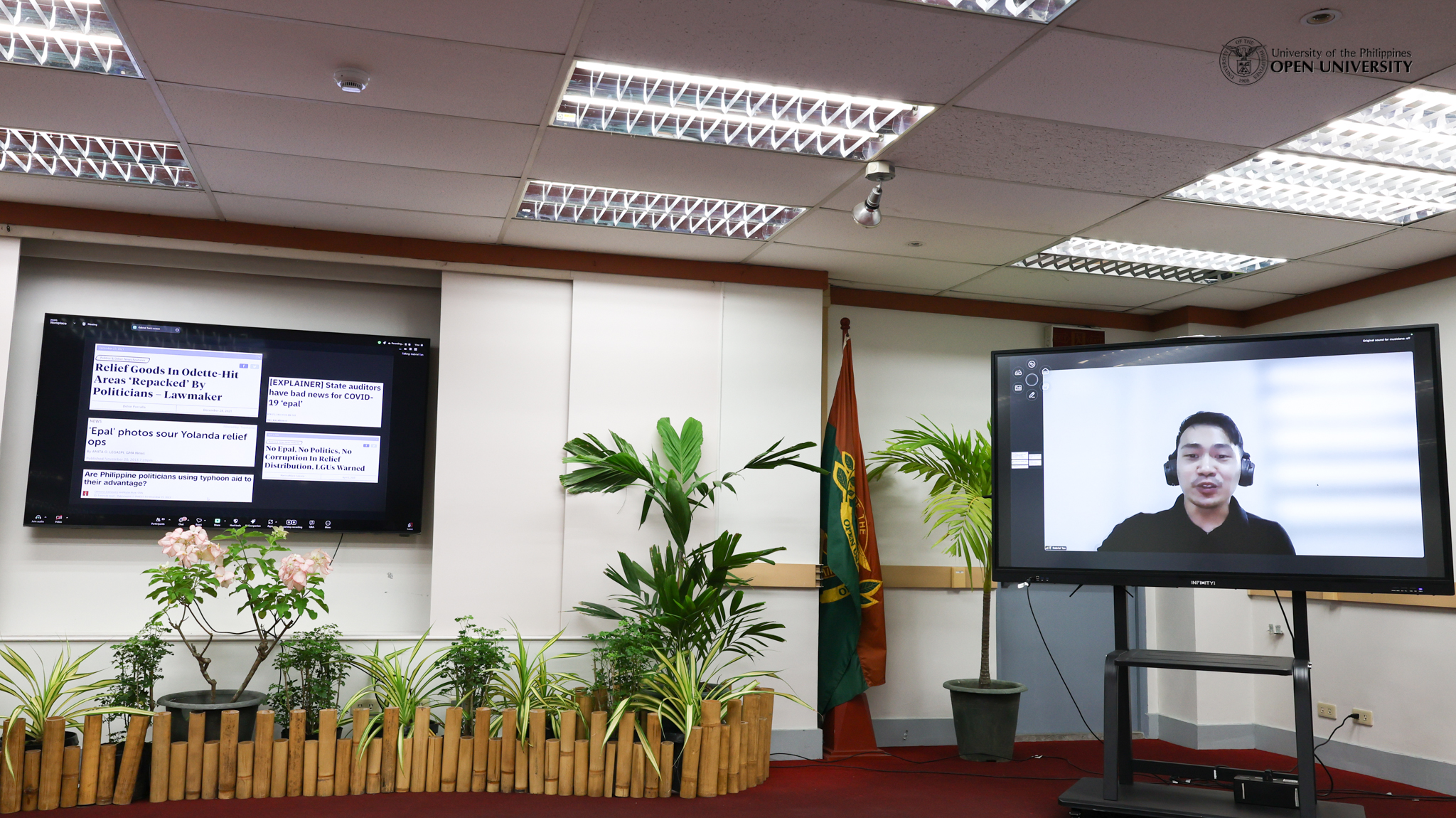

Furthermore, Mr. Gabriel C. Tan of the UP Resilience Institute tackled the topic of disaster aid as electoral currency. He provided insights into how relief and assistance during disasters are often used to gain political favor, especially during election periods. He discussed the implications of this practice on governance, accountability, and the equitable distribution of aid, emphasizing the need for transparent and needs-based disaster response systems that prioritize public welfare over political gain.
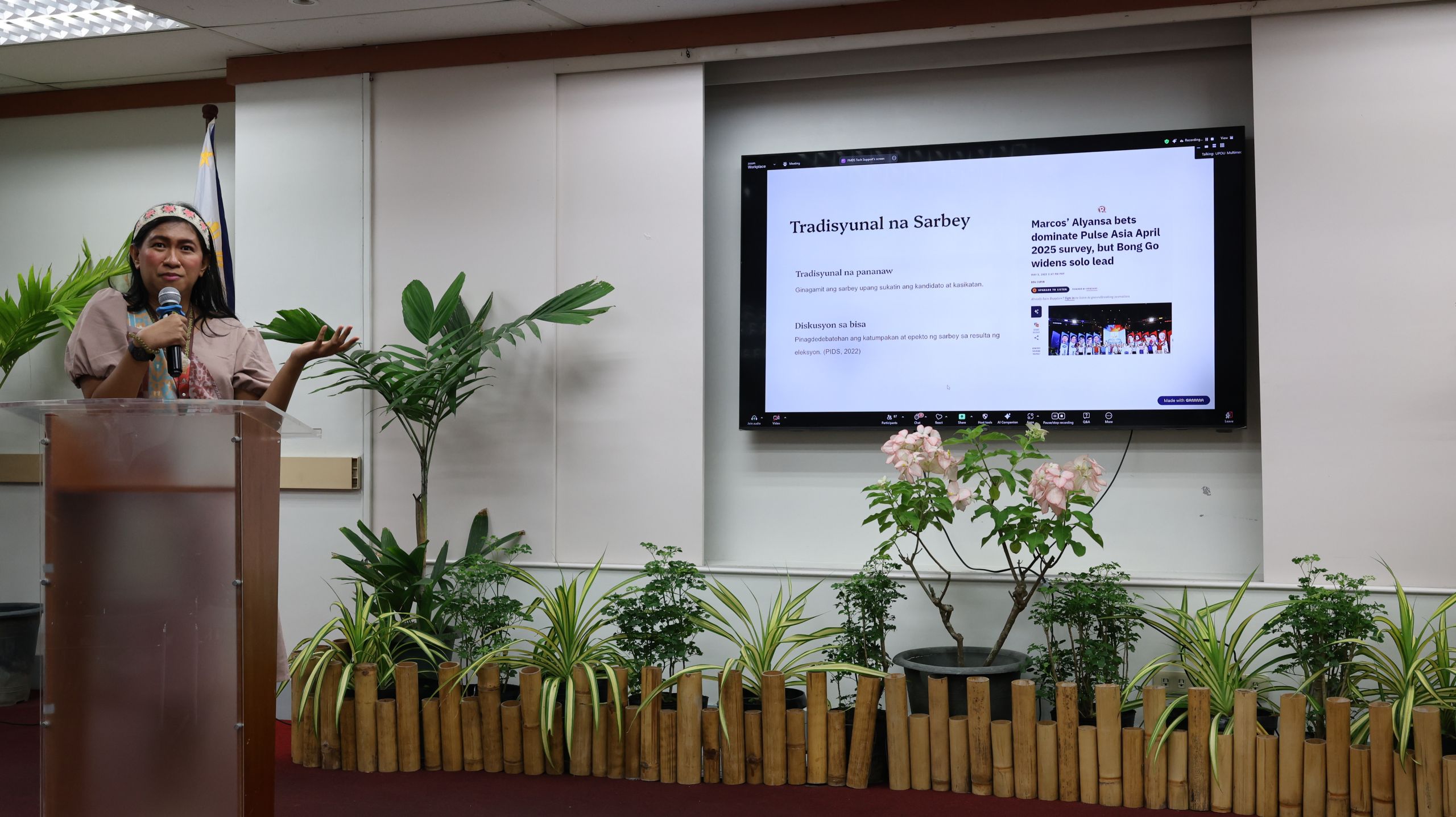

Assistant Professor Roda L. Tajon, faculty member of the Faculty of Information and Communication Studies and Director of Office of Student Affairs, concluded the series of presentations with a focus on the technological aspects of the electoral system. She discussed traditional surveys, influences of social media, internet and influencer statistics in the Philippines, and the growing threats of disinformation and virtual risks. She also explored the use of social media as a political platform, cybersecurity in elections, and other critical issues affecting the digital dimensions of the country’s democratic processes.
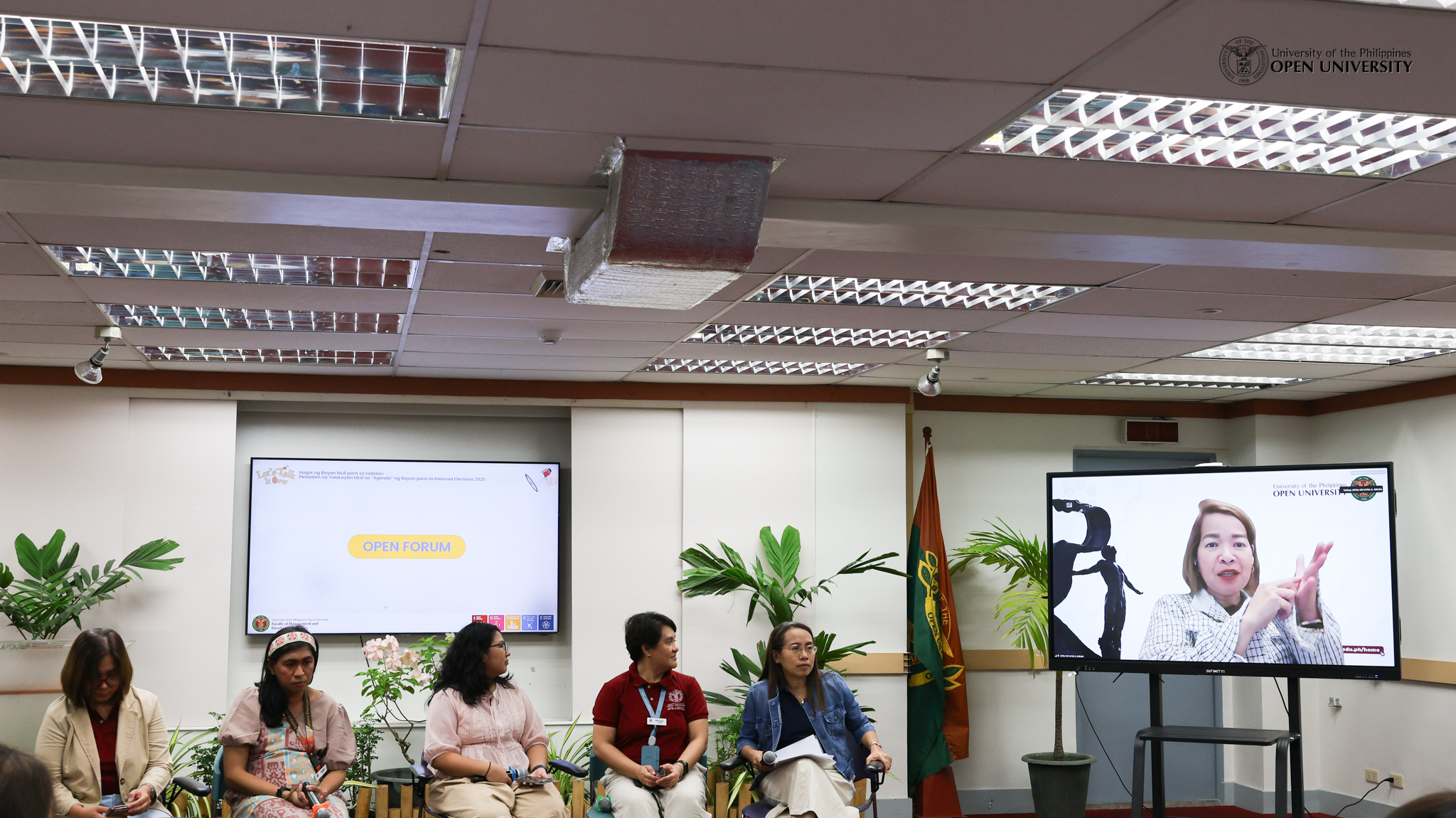

The event culminated with an open forum where attendees actively participated, asking questions and sharing reflections on the issues raised. The forum fostered a lively exchange of ideas, encouraging critical engagement and deeper understanding of the complex interplay between governance, technology, and public accountability.
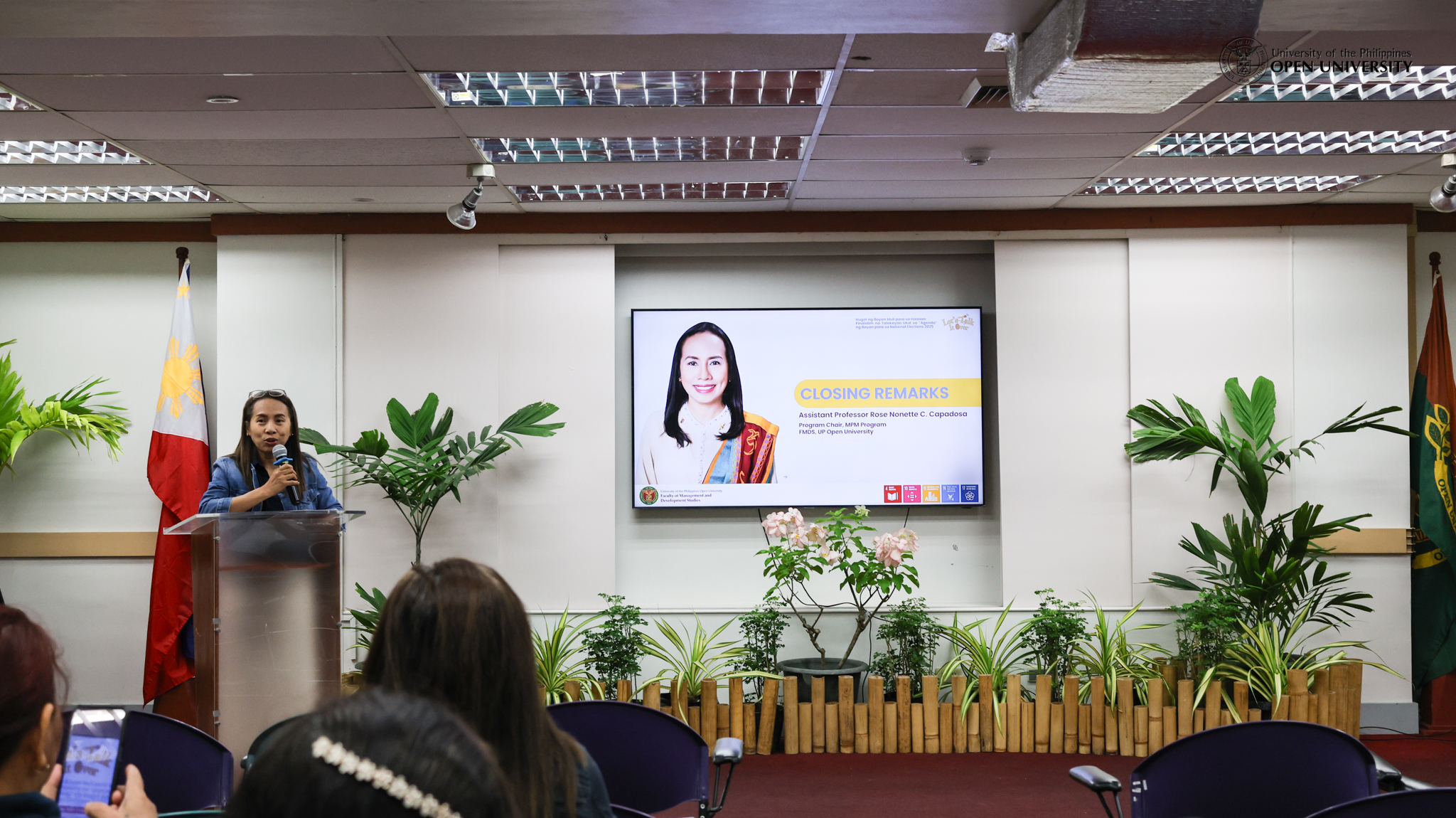

The program ended with the awarding of certificates and closing remarks from Assistant Professor Capadosa, who expressed her gratitude to the guests, participants, and the organizing committee. She also reaffirmed the university’s commitment to promoting informed citizenship, ethical leadership, and inclusive development through education and engagement.
This forum serves as a vital platform for raising awareness, inspiring dialogue, and encouraging thoughtful participation—reminding everyone that responsible voting is not just a right, but a collective responsibility in building a more just and sustainable society.
This also supports the achievement of the United Nations Sustainable Development Goals (SDGs), particularly SDG 4 (Quality Education), SDG 10 (Reduced Inequalities), SDG 11 (Sustainable Cities and Communities), SDG 16 (Peace, Justice and Strong Institutions), and SDG 17 (Partnerships for the Goals).
Written by: Vanessa T. Autor • Edited by: Larry N. Cruz
Sustainable Development Goals

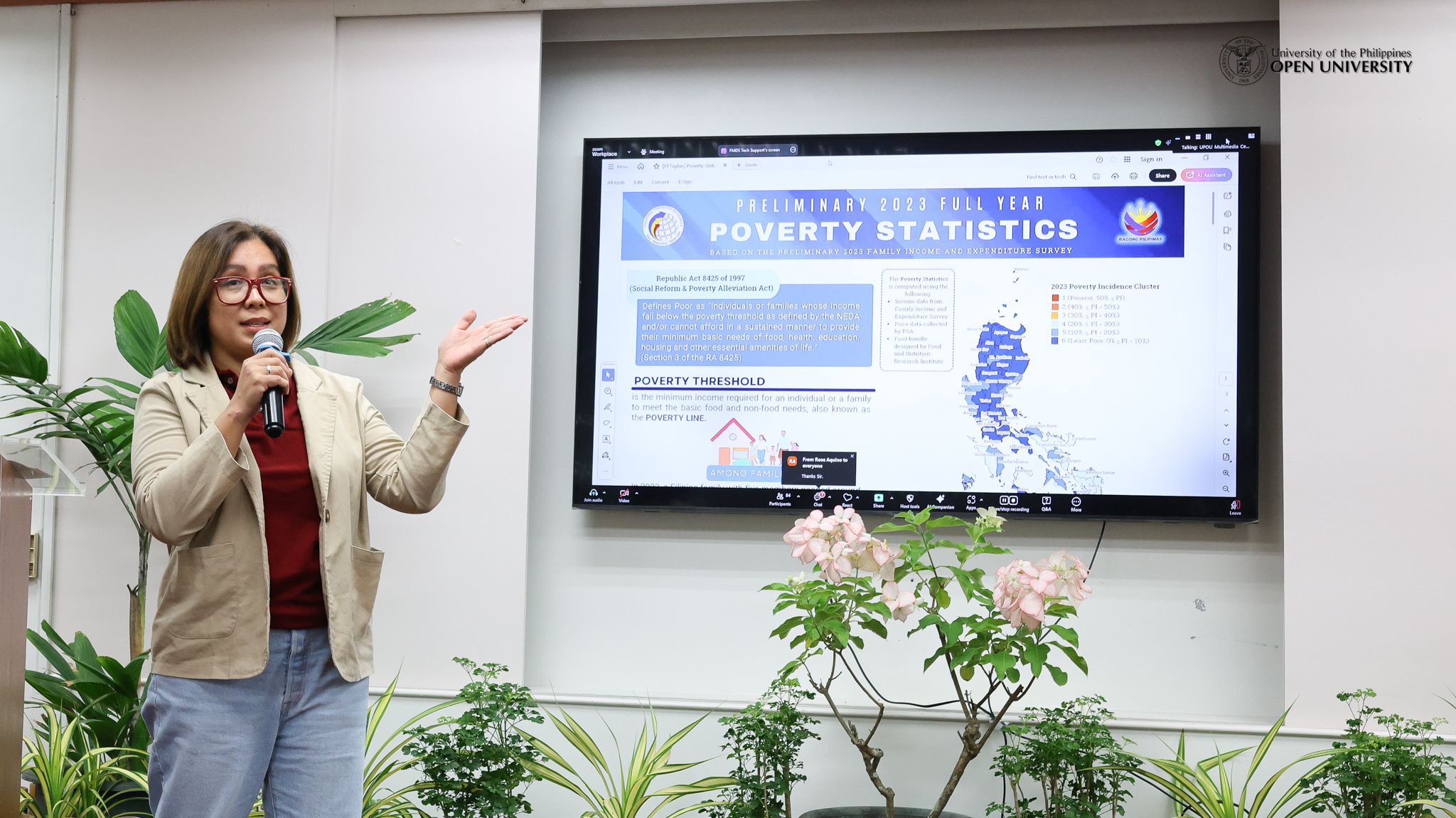
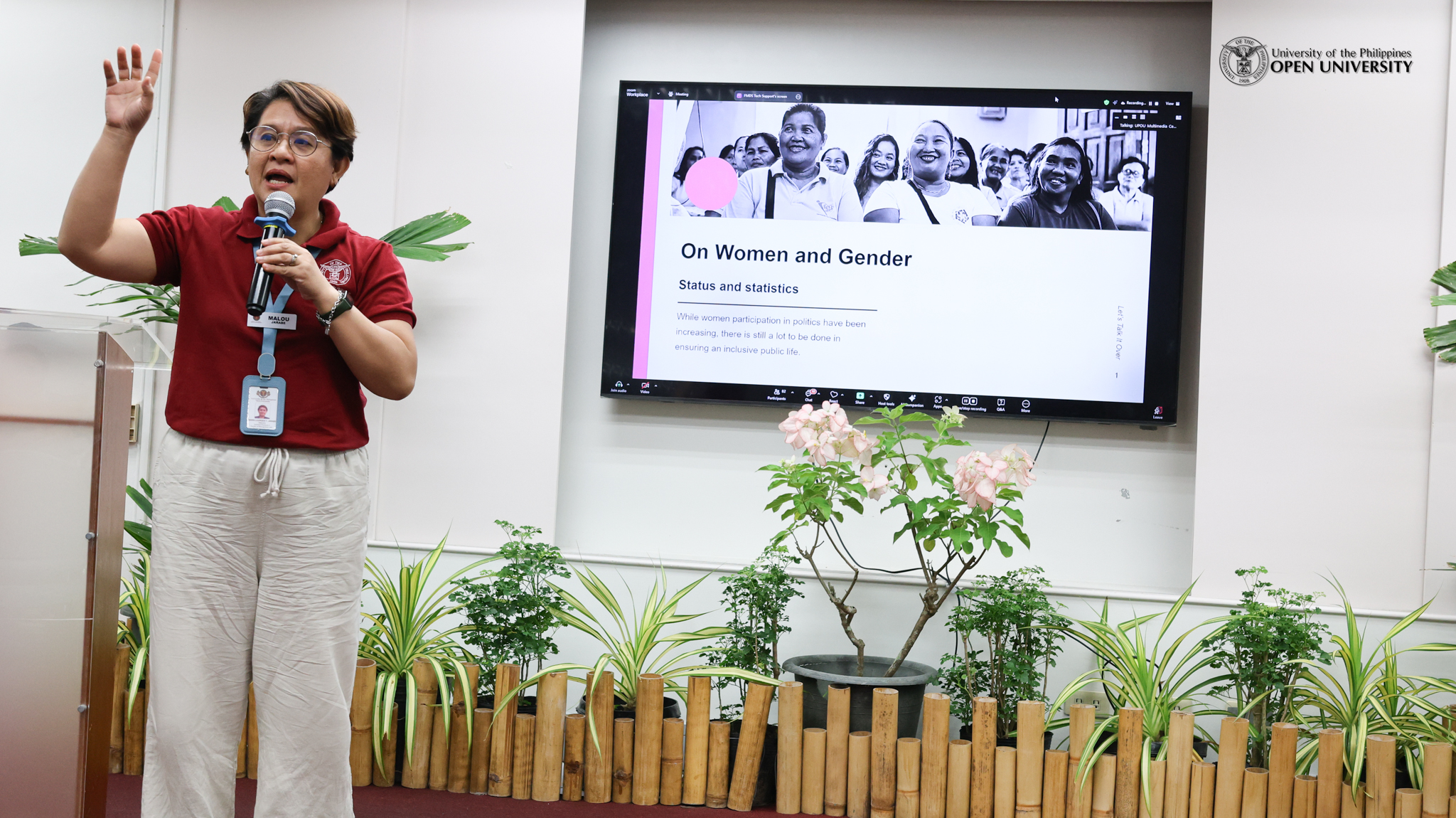
















FMDS Socials